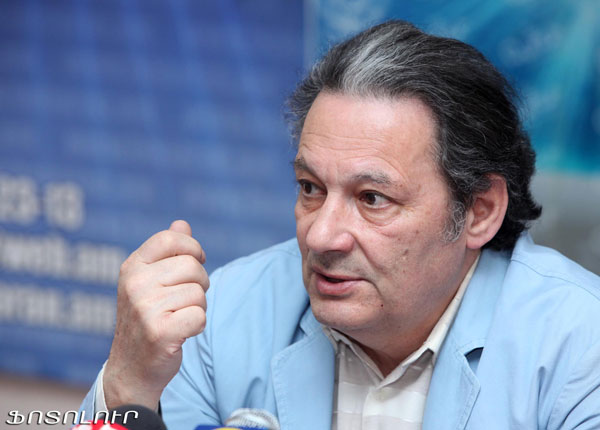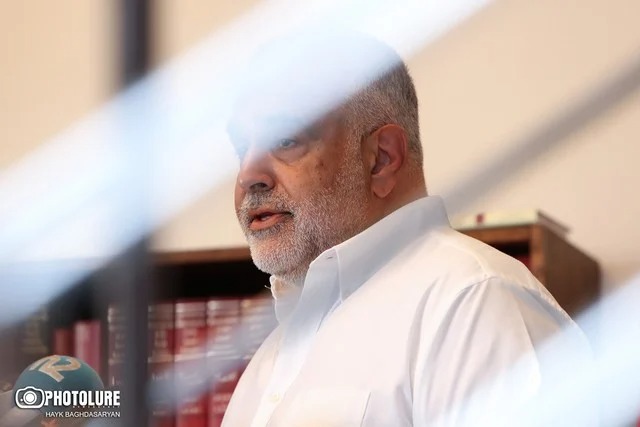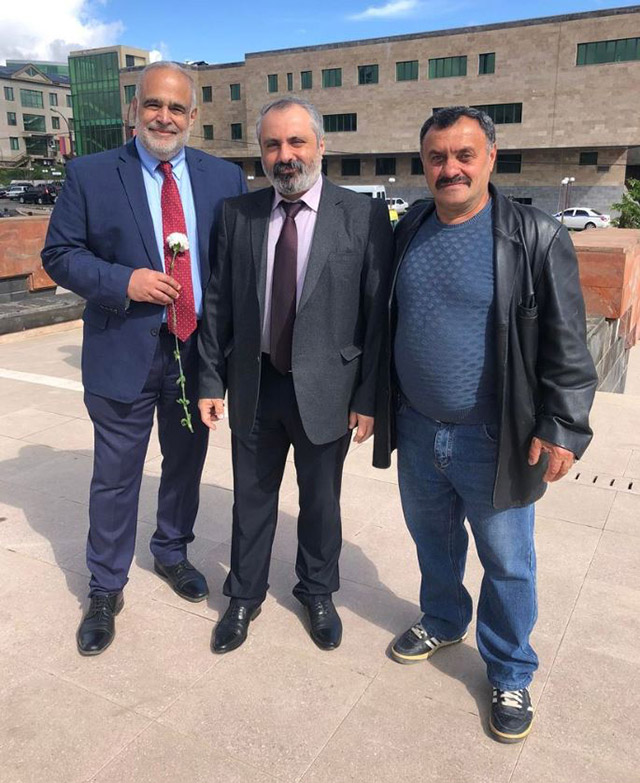Sociologist Aharon Adibekyan and psychologist Samvel Khudoyan talked about the popular struggle on March 1, 2008 and the reasons for the current situation, their similarities and differences during a meeting with journalists today. Psychologist Samvel Khudoyan thinks that the leaders in 2008 were more aggressive. However, at present, both the leading forces
and the people are peaceful. Sociologist Aharon Adibekyan agreed with the psychologist, adding that this movement would have a peaceful resolution, and the current process just filled the existing political vacuum. Mr. Adibekyan offered three options, one of which, he was convinced, Raffi Hovhannisyan would choose: he would either admit that his attempt had been unsuccessful and apologize, or offer the people to stay by his side till the next presidential election, or offer to join the government and carry out a part of his presidential program. Mr. Adibekyan said about the difference between the 2008 process and the current process: “At that time, the leader relied on the radical opposition, and now Raffi Hovhannisyan has become the symbol of the opposition without uniting it.” According to the data put forward by the sociologist, 6.5% of the Armenian National Congress (ANC) members, 25.5% of the Prosperous Armenia Party members, 10% of the Republican Party members, 6.5% of the Rule of Law Party (RLP) members, and more than 6% of the Armenian Revolutionary Federation (ARF) members voted for Raffi Hovhannisyan.
When asked whether Raffi Hovhannisyan was ready to assume the office of the presidency, the psychologist said: “Raffi Hovhannisyan is a very persistent and resolute person; he doesn’t have experience of governing on such a scale, but no one has experience at the beginning.” While Aharon Adibekyan opposed this idea: “Being president is Raffi Hovhannisyan’s childhood dream, as well as Paruyr Hayrikyan’s.” Talking about the positive aspects of the election, the psychologist stated that although the election had been unfair, it had cleared the way for switching from the Soviet-type governance to democracy.
Gohar SAYADYAN






















































